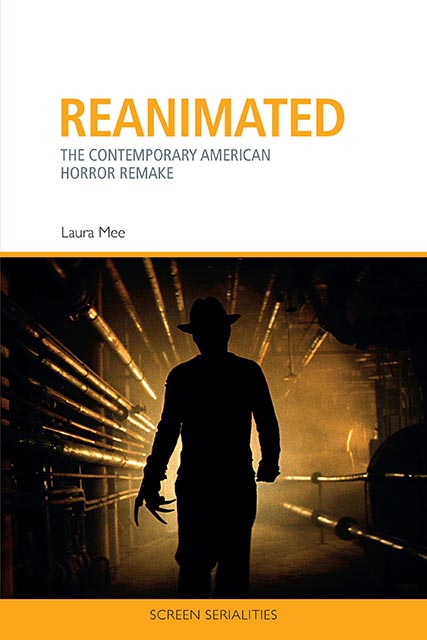Book contents
- Frontmatter
- Contents
- List of Figures
- Acknowledgements
- Chapter 1 Horror Reanimated: The Rise of the Remake
- Chapter 2 Defining and Defending the Horror Remake
- Chapter 3 Re-Writing Horror Mythology in the Platinum Dunes Reboot
- Chapter 4 Distinction and Difference in the Slasher Remake
- Chapter 5 Cultural Anxieties and Ambiguities in Post-9/11 Remakes
- Chapter 6 Gender and Genre in the Rape-Revenge Remake
- Conclusion. ‘The Devil Never Dies’: Recent Horror Remakes
- Bibliography
- Films and Television Programmes
- Index
Chapter 5 - Cultural Anxieties and Ambiguities in Post-9/11 Remakes
Published online by Cambridge University Press: 10 August 2023
- Frontmatter
- Contents
- List of Figures
- Acknowledgements
- Chapter 1 Horror Reanimated: The Rise of the Remake
- Chapter 2 Defining and Defending the Horror Remake
- Chapter 3 Re-Writing Horror Mythology in the Platinum Dunes Reboot
- Chapter 4 Distinction and Difference in the Slasher Remake
- Chapter 5 Cultural Anxieties and Ambiguities in Post-9/11 Remakes
- Chapter 6 Gender and Genre in the Rape-Revenge Remake
- Conclusion. ‘The Devil Never Dies’: Recent Horror Remakes
- Bibliography
- Films and Television Programmes
- Index
Summary
From the Cold War concerns of 1950s science fiction – as in Invasion of the Body Snatchers and The Day the Earth Stood Still (Robert Wise, 1951) – to recent films about race and racism in contemporary America (Get Out, Candyman), genre films are regularly contextualised as figurative representations of contemporaneous social, political and cultural concerns. One specific period in horror history has consistently attracted retrospective cultural readings. Much American horror cinema of the 1970s has been celebrated as the genre's ‘golden age’ (Wood 1979), a cycle that engaged with the attitudes and values of the highly politicised era in which it was produced. Films such as The Texas Chain Saw Massacre, The Last House on the Left, The Hills Have Eyes and Dawn of the Dead reflected the concerns of 1970s America, engaging with issues including responses to the Vietnam War, rising consumerism and the collapse of the nuclear family as American institution (see Wood 1979 and 1986, Waller 1987, Crane 1994, Jancovich 1994, Humphries 2002, Blake 2002, Lowenstein 2005, Cherry 2009 and Phillips 2012, among others).
By contrast, the reception of these films’ 2000s remakes seldom recognised any cultural commentary. Instead, filmmakers were accused of being concerned with style over substance, ‘covering old ground with inconvenient social comment stripped away’ (Newman 2004), part of a tried and tested formula for maximising profit. Rarely were the remakes considered within their own contexts, the focus instead being on their deviation from source texts. However, a number of academic studies (Blake 2008, Bishop 2009, Briefel 2011, Roche 2011, Wetmore 2012, Cloyd 2017, Kendrick 2017) have aligned some remakes with 2000s horror cinema seen to address the concerns of post-9/11 American society, suggesting that the films can be understood as metaphorical manifestations of cultural and socio-political issues equivalent to their 1970s counterparts. This chapter explores and problematises this notion by addressing these themes and suggesting that any messages they convey are rather ambiguous. Some analyses ascribe a necessity and ‘worthiness’ to the remakes, forcing them to fit within a convenient contextual framework that corresponds to that of the original films. Considering the new versions solely in this way discounts the processes of adaptation at play in remaking and largely ignores how films function within the genre at the time of their own production and release.
- Type
- Chapter
- Information
- ReanimatedThe Contemporary American Horror Remake, pp. 107 - 136Publisher: Edinburgh University PressPrint publication year: 2022



